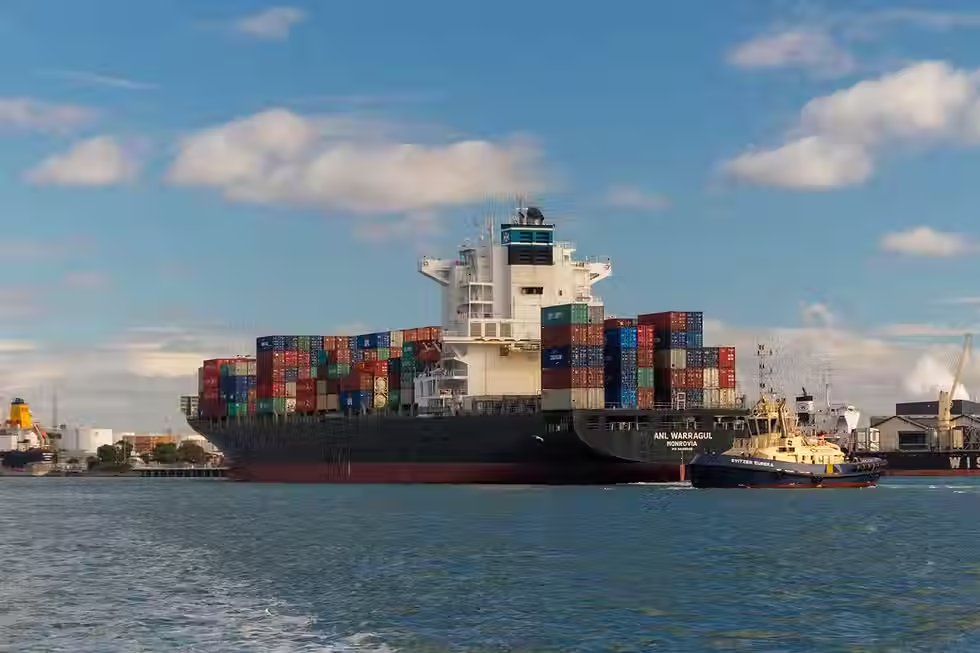What Customs Brokers Know That You Don’t: Avoiding Red Flags at the Border
- declarationnexus
- Jun 18, 2025
- 3 min read
Updated: Jun 19, 2025

At Declaration Nexus, we’ve handled countless shipments where one overlooked detail in the customs documentation or an incorrect tariff schedule caused major setbacks. For most importers, the customs process can seem like a mountain of paperwork and rules, but that’s exactly where a customs broker steps in. We know what the border protection officers seek and are experts at the nuances of customs compliance.
Whether your business relates to international commerce, freight management, or optimising customs regulations, knowing what customs brokers do can save you effort, money, and even your reputation.
What Is a Customs Broker and Why Does It Matter
A customs broker is a professional licensed to represent the importer's interest and ensure that the importer meets all legal requirements for entering a particular country. This involves completing and lodging a customs entry, facilitating the payment of duty, and advising on trade compliance.
Here’s what we, as experienced customs brokerage services professionals, help with:
Classifying goods correctly using the Harmonised System (HS)
Filing customs declarations with the correct data
Navigating duties, taxes, and tariff requirements
Managing communications with the US Customs and Border Protection or Singapore Customs
Ensuring proper customs simplifications and customs solutions, where applicable
These processes are not just bureaucratic checkboxes. Failing to comply can trigger red flags, leading to audits, fines, or shipment seizure.
Common Red Flags We Help You Avoid
One of the most overlooked aspects of customs is ensuring your invoice and documentation match what’s declared at the port. Something as simple as a mismatch between the declared value and the import and export paperwork can cause authorities to delay clearance.
Some other red flags include:
Incorrect use of customs declaration codes
Not registering with the Authorised Economic Operator (AEO) system if applicable
Ignoring Customs-Trade Partnership Against Terrorism (C-TPAT) requirements for US-bound goods
Failing to meet the Singapore Food Agency (SFA) import regulations for food or plant-based goods
When you engage a customs service provider like us, we help you spot and solve these issues before they cost you.
Working with Freight and Logistics Stakeholders

In our experience, effective customs clearance isn’t done in isolation. We coordinate with your freight forwarding company, third-party logistics teams, and supply chain partners to keep things running smoothly. Everyone, from the customs agent to the freight forwarder, plays a crucial role.
We work with warehouses to prep shipments before they arrive so that shipping and warehouse system data are kept in sync. This guarantees smooth transitions to and from and reduces expensive reprocessing on site.
Real-World Examples of Cost Savings
Here's an example: a client almost had to pay twice as much for their duties and taxes because their goods were being misclassified. Via amendment of the HS code and subsequent verification by the customs operations authority, we ensured the appropriate tariff was levied, and in the process, the company saved significant costs.
Another importer tried navigating the process alone and faced weeks of delays. When they partnered with us, they understood how customs expertise plays into everything, from choosing the right brokerage services to knowing how to present their licensed customs credentials to avoid unnecessary scrutiny.
The Backbone of Trade Compliance
Whether you're importing technology from the US or exporting goods through Singapore Customs, trade rules and customs clearance services aren’t optional—they’re mission-critical. Understanding the role of a customs broker means understanding how we shield your business from potential regulatory exposure.
We’re also up-to-date on changes in US customs practices and ensure your compliance documents align with Customs and Border Protection (CBP) requirements.
When to Call a Customs Broker
It’s not just about documentation—it’s about timing, classification, and avoiding suspicion. If your business handles:
Export or air freight shipments
Products that require customs compliance
Items flagged by Customs and Border Protection (CBP) or under tight trade rules
Then it’s time to bring in a customs broker, especially for businesses in Singapore, where customs and border protection compliance must be airtight.
Final Thoughts
At Declaration Nexus, we believe importers shouldn’t have to fear the border. As a customs broker, we offer more than just filing papers—we offer assurance. We are proactively checking your shipment for vulnerabilities, advising you on the latest customs laws and regulations, and helping you navigate every step of the customs operations process.
If you need a customs brokerage audit, a review of duties and taxes, or are changing your tariff schedule, you want someone who knows the customs clearance services space inside and out. We are here to assist you in a quiet, competent, and compliant manner. Let’s cross borders the right way.




